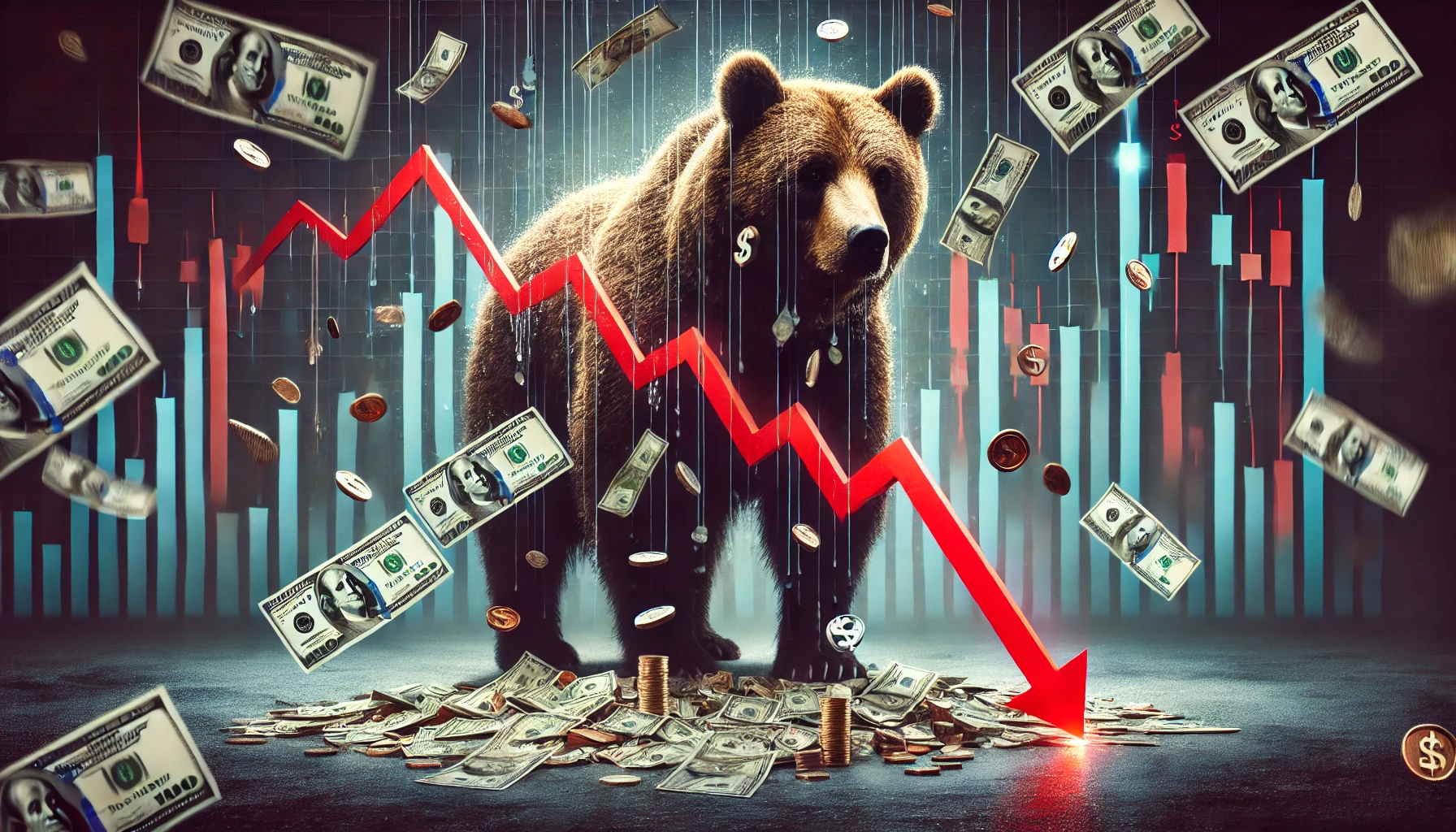Coming up to invest in a bear market is like wanting to walk in a storm and there seems to be no concurring point. Prices are declining, the headlines are shocking and it may be an emotional time suffering the frustration of the value of your investments going down. Nonetheless, a lot of investors question: Is it intelligent to invest in a bear marketplace? What will happen, in the event that the market continues to decline?
In this blog post, we will simplify it all down- what a bear market is, what happens when you invest it, and how to cope with it.
What is a Bear Market?
A bear market occurs when the stocks drops by 20 percent or more to a recent high. It can appear with poor economic news on the rise inflation, layoffs, heavy interest and geopolitical issues. In such opportune situations, investors are usually in a negative mood, and they develop fear.
Bear markets are hard However, they are also a normal feature of the market cycle, such as the example of a bull market (where prices increase). Historically, bear markets do not last indefinitely, and the sensation they give off during their course can surely make them feel like they do.
What Happens If You Invest and the Market Keeps Dropping?
Suppose that you put in some money when the stock market is in the doldrums, in the hope of catching it at a bargain. However, by the time you invest it has gone down further.
And this is what can befall:
1. Your Investments Go Up In Price (At Least temporarily)
When you buy a stock or fund at a price of 100 and it falls to 80, then your paper losses are 20 percent of your investment. The market may continue to deteriorate and that will reduce your portfolio even further.
This is referred to as paper losses and you have not yet lost real money until you sell. However, it can really feel hard on an emotional level. The reason behind many new investors panicking and retracting their investment-locking in their losses- lies in this.
2. You May have Some Doubts About your Decision
A fall in value of your investment can be a confidence shaker. One might be tempted to think:
- Was this an error??
- Even for include, am I going to lose more before I sell?
- I should have waited until the bottom perhaps.
However, the bottom can not be timed. Even professional stock owners cannot tell when the dropping will come to an end. Long-term investors need to remember that the market can drop in the short-term.
3. You might be putting yourself in the position of long term gains.
This is the good news: By continuing to make investments during a bear market, and holding those investments through time, you may even stand to gain as a result of the lower prices.
Why? It is cheaper since you are buying stocks at a discount. Those investments that you can acquire at a lower price will end up appreciating when the market finally rebounds, and history has shown us that it more often than not does.

Lessons of previous Bear Markets
Historically, a quick historical review of youngsters:
In the 2008 financial crisis, the S&P 500 decreased in value by more than 50 percent. However, that was rectified by 2013, and it has surged since then to unprecedented levels.
In March 2020, the coronavirus epidemic caused a crash of markets of more than 30%. However, the market rose sharply in a matter of months.
By investing and hanging on through these scarier times, one can safely expect to achieve great gains in the long run.
Tactful Ways to Deal with a Downtrend
When you invest in a bear market, you will need to consider a few cognitive ways to continue doing so without incurring huge losses due to falling prices:
1. Think In the Long-Term
Bear markets are shorter than the bull markets. Historically, bear markets have persisted onto 9-14 months, and the bull markets onto years. Attempt to move back and see your long-term objectives.
2. Automatically Invest a Difference Amount (Dollar Sequencing)
Rather than investing a big lump sum investment at the time, invest over a longer period. This is known as dollar-cost averaging whereby the fixed amount is purchased on a regular basis (monthly) regardless of the price in the market. This tends to even out the highs and the lows with time.
3. Stay Diversified
Do not have all your holdings in one stock or even one sector. Varied asset types, such as U.S. stocks, international stocks, bonds, even cash can also help minimize risk and boost stability.
4. Don t make Emotional Decisions
It is only natural to feel scared when a drop occurs in the market. However, responding out of emotions- such as panic selling- usually results in poorer performance. And sometimes of the largest recoveries in the market occur fairly soon after great declines. In case you sell, you could fail to profit out of those.
The Times To Avoid Making an Investment in the Bear Market
It is not the thing to do in just any type of an investment. If you:
- Have a need to obtain the funds within the next 6 12 months
- There is no emergency fund
- Cannot tolerate the viewing of your portfolio experience any decline in value
Better investing might be to wait or stay until you have a nest egg established. Investing is a long run game This is because you do not want to have to sell at a dip stage.
Final Thoughts
markets are an extremely intimidating place to invest in, and many may think it is foolish to buy into them as stocks seem to keep sinking. History is filled with examples of those who remained invested in hard times, who ended up better off.
The key is to remain calm, to adhere to your plan, and look at long term. Market crashes are short-lived; the effect of compounding and discipline investing is decades-spanning.
So, investing in a bear market, is no big deal to panic. Continue to strike and remain diversified and don’t be lonely. Most of the successful investors have accumulated fortunes by persevering when situations appeared to be hopeless
Disclaimer: This content is for educational purposes only and not financial advice. Speak with a licensed financial advisor to make decisions that fit your personal situation.


